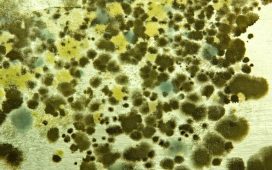Scientists claim they have found the secret to the perfect cup of tea – and it has nothing to do with when you put the milk in.
Scientists say the secret to brewing a delicious pot of tea may lie in a collection of microbes found on the roots of tea plants.
Researchers in China have identified a group of bacteria present in the soil that, they say, could make good quality tea taste even better.
These microbes work together to boost the production of an amino acid known as theanine, the main component responsible for the taste of tea.
The researchers said that focusing on microbial communities to enhance tea flavours may be a better way to create a tastier brew than genetically modifying tea plants.
The news comes as a tea shortage warning hit the UK.
For the study, published in the journal Current Biology, the researchers looked at all the microbes found on the roots of tea plants.
(Getty Images)
They then looked at the nitrogen metabolism of plants – a basic process of plant physiology where the nitrogen gas is converted into a usable form, such as ammonia.
The researchers identified the different microbes associated with better nitrogen metabolism.
They said these microbes influenced how ammonia – an essential element in photosynthesis – was absorbed by the plants, which in turn boosted the production of theanine.
The researchers then created an artificial microbial community, dubbed SynCom, that they believed would help boost theanine production in tea plants.
Professor Tongda Xu, of Fujian Agriculture and Forestry University in Fujian, China, said: “Through the isolation and assembly of a synthetic microbial community from high-quality tea plant roots, we managed to notably enhance the amino acid content in various tea plant varieties, resulting in an improvement in tea quality.”
When tested on a Chinese tea plant called Rougui, the researchers found that SynCom bolstered theanine levels in tea plants.
These microbes also allowed Arabidopsis thaliana – a small flowering plant commonly used in plant biology studies – to better tolerate low nitrogen conditions, the researchers said.
Wenxin Tang, also of Fujian Agriculture and Forestry University, said: “The initial expectation for the synthetic microbial community derived from high-quality tea plant roots was to enhance the quality of low-quality tea plants.
“However, to our astonishment, we discovered that the synthetic microbial community not only enhances the quality of low-quality tea plants but also exerts a significant promoting effect on certain high-quality tea varieties.
“Furthermore, this effect is particularly pronounced in low-nitrogen soil conditions.”
The team said its findings could not only make teas more tasty but also reduce the need for chemical fertilisers that boost nitrogen metabolism, with potentially broader implications across other agricultural crops.
Prof Xu said: “Based on our current experimental findings, the inclusion of the SynCom21 microbial community has not only improved the absorption of ammonium nitrogen in different tea varieties but also enhanced the uptake of ammonium nitrogen in Arabidopsis thaliana.
“This suggests that the ammonium nitrogen uptake-promoting function of SynCom21 may be applicable to various plants, including other crops.”












